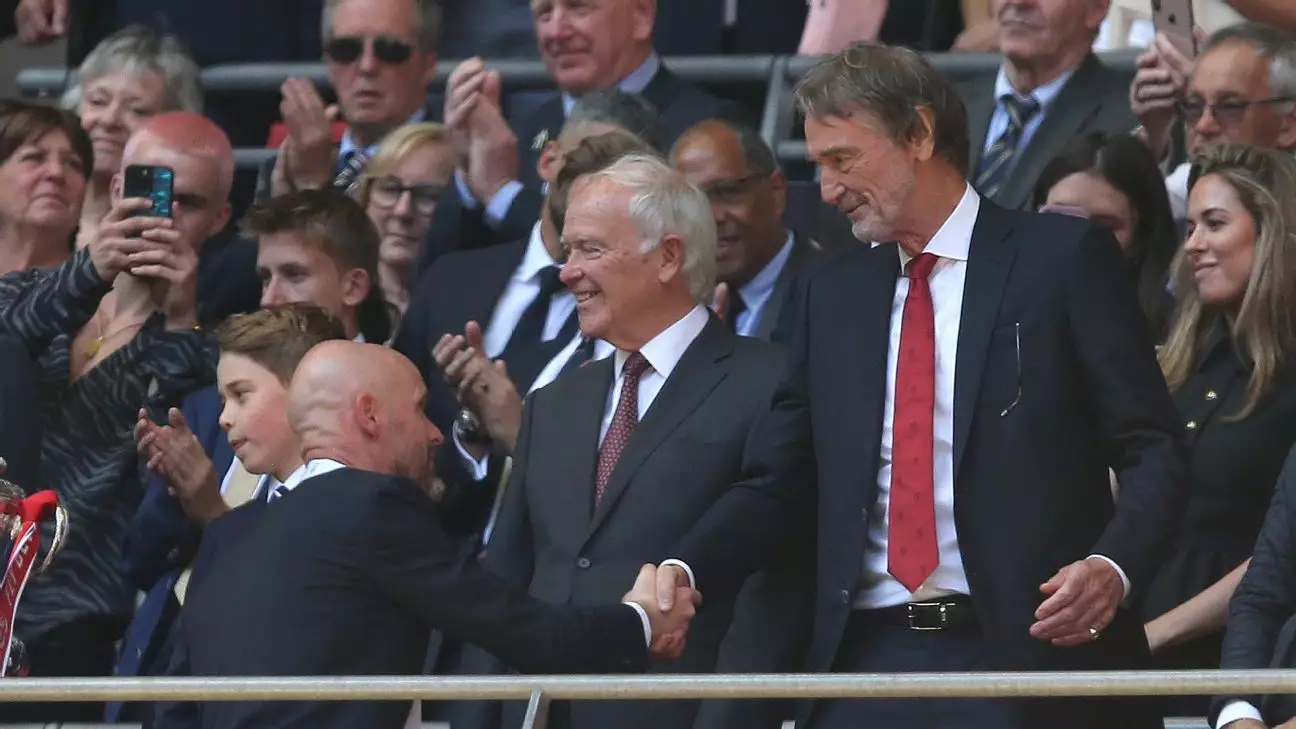In a turbulent season filled with mixed performances, Manchester United finds itself grappling with uncertainty regarding the future of its manager, Erik ten Hag. The co-owner, Sir Jim Ratcliffe, has expressed reluctance to publicly back the beleaguered coach, as the team currently endures a disheartening stretch of four consecutive winless matches. Compounding this pressure, a pivotal match against Aston Villa looms on the horizon, one that could ultimately dictate Ten Hag’s tenure at the club. Ratcliffe’s non-committal stance speaks volumes about the internal strife within the Manchester United hierarchy, as the stakes continue to rise.
During a recent interview, Ratcliffe was evasive when questioned about his faith in Ten Hag, stating, “I don’t want to answer that question.” This statement suggests a deliberate detachment from the managerial situation, placing the onus of decision-making firmly in the court of the management team. This reluctance to intervene highlights power dynamics within Manchester United’s current ownership structure and raises questions about the level of authority Ratcliffe truly wields as a co-owner. Ten Hag’s fate resides in the hands of a newly formed management team, which must determine the club’s direction in what seems to be a turbulent environment.
The backdrop of this managerial uncertainty is a significant restructuring at Manchester United since Ratcliffe’s acquisition of a 27.7% stake in February. The appointment of new executives, including CEO Omar Berrada, sporting director Dan Ashworth, and technical director Jason Wilcox, is part of a broader effort to redefine the club’s operational ethos. However, their relative inexperience, having only been in their roles since July, may hinder their ability to make swift and impactful decisions regarding the coaching staff and overall strategy.
Ratcliffe’s comments indicate a shift in responsibility and job security for Ten Hag relates directly to the capabilities and insights of the new management team, which has been together for just a few months. Their past absence from the organization creates a gap in continuity and a general unfamiliarity with the team’s ongoing dynamics and historical context.
Ratcliffe’s overarching objective is clear: he envisions revitalizing Manchester United and restoring it to its former glory. However, this ambition comes with its own set of complications, particularly when team performance has noticeably declined. By distancing himself from the decision to extend Ten Hag’s contract last summer, Ratcliffe implies that accountability lies elsewhere. Nonetheless, the urgency to align immediate performance with long-term goals necessitates strategic decision-making that may or may not favor Ten Hag.
Manchester United stands at a significant crossroads. The fate of Ten Hag is precariously balanced on the decisions of a relatively nascent management structure that is still determining its approach amid a challenging season. The upcoming fixture against Aston Villa could serve as a crucial turning point, not just for Ten Hag but for the future vision of a club striving to reclaim its status among the elite of football. Whether or not Ratcliffe’s hands-off philosophy will yield results remains to be seen; only time will reveal the true direction of Manchester United’s ambitious aspirations.

